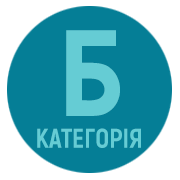OVERCOMING TRAUMATIC EXPERIENCES OF CIVILIANS THROUGH ART THERAPY
DOI:
https://doi.org/10.32782/psyspu/2024.1.23Keywords:
overcoming traumatic experiences by the civilian population of Ukraine, art therapy, refugees, psychological trauma, families of fallen soldiersAbstract
As a result of the military aggression of the Russian Federation against Ukraine, more than 5 million Ukrainians have the status of internally displaced persons (IDPs) and are now in other regions of Ukraine [1]. According to a study by Eremenko V. from the Active Group these people are faced with many vulnerability factors starting from everyday (food, clothing, housing, work), as well as emotional and psychological problems associated with the stress in which they are now [2]. Often such people lose faith in the future, the desire to develop, work, they actively show signs of depression and in some cases suicidal behavior. Many Ukrainian and international experts are studying the social and psychological consequences of this war, for example Litvinenko O., Koenig L. [3]. This topic is becoming an urgent issue today, and the solution of the emotional and psychological problems of Ukrainian families will be important and relevant for a long time after the victory of Ukraine over the invaders. A separate category of citizens is the families of fallen solders. According to the information released by the President of Ukraine Zelenskyy, as of March 2024, the official number of dead soldiers was 31 000 people. Many of them have families with children who need psychological help to overcome traumatic experiences. The article describes the developed Program as well as the results of testing the psycho-emotional state of participants before and after the Program. The practical significance of this study is the development of methodological recommendations for working with persons who experience the impact of traumatic experiences, and the rapid overcoming of traumatic experiences by the civilian population of Ukraine. The key points of this study were included in the guidelines for the organizers of rehabilitation camps for families affected by the aggression of the Russian Federation against Ukraine. We see the prospects for further research in the study of changes in the state of persons who participated in the program for overcoming traumatic experiences, after a certain period of time and the possible development of repeated correction programs.
References
Вашай Ю. Теоретичний аналіз міжнародної міграції в умовах військових подій. Економічні науки: зб. наук. праць. Рівне: НУВГП, 2022. Вип. 2 (98). С. 26–34.
Єременко В. Проблеми і потреби внутрішньо переміщених осіб: результати якісного дослідження. Active Group. 2022. URL: https://activegroup.com.ua/2022/05/31/problemi-i-potrebi-vnutrishno-peremishhenix-osib-rezultatiyakisnogo-doslidzhennya (дата звернення: 03.08.2023).
Литвиненко О., Кеніг Л. Харчова поведінка переселенців з України внаслідок війни 2022. URL: https://osf.io/3py6f (дата звернення: 29.07.2023).
Возніцина К., Литвиненко Л. Невидимі наслідки війни. Як розпізнати? Як спілкуватись? Як допомогти подолати? Довідник для широкого кола фахівців. Київ, 2020. 188 с. URL: https://legal100.org.ua/wp-content/uploads/2020/09/Nevidimi-naslidki-vii--ni.pdf.
An inventory for measuring clinical anxiety: psychometric properties / A.T. Beck, N. Epstein, G. Brown, R.A. Steer. Journal of consulting and clinical psychology. 1988. Vol. 56 (6). P. 893–897.
Шкала депресії PHQ. URL: https://mozok.ua/depressiya/testy/item/2712-shkala-depres-PHQ (дата звернення: 18.06.2023).
Енциклопедичний словник з арттерапії / О. Вознесенська, О. Скнар, О. Бреусенко-Кузнєцов, О. Деркач, Л. Мова та ін.; за заг. наук. ред. О. Вознесенської, О. Скнар. Київ: Золоті ворота, 2017. 312 с.







